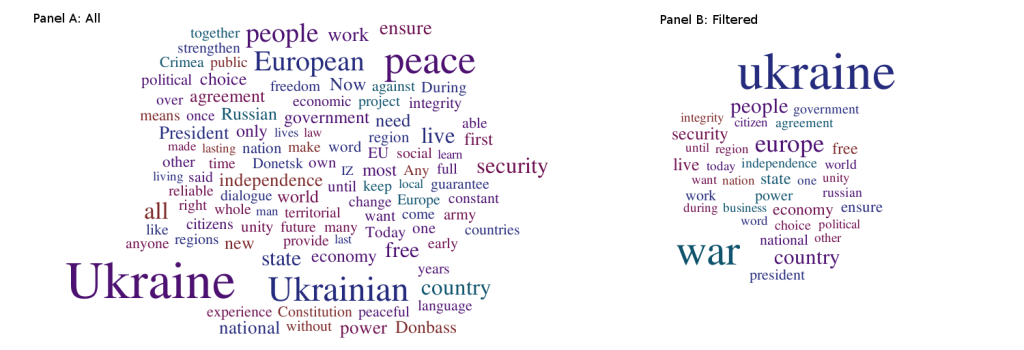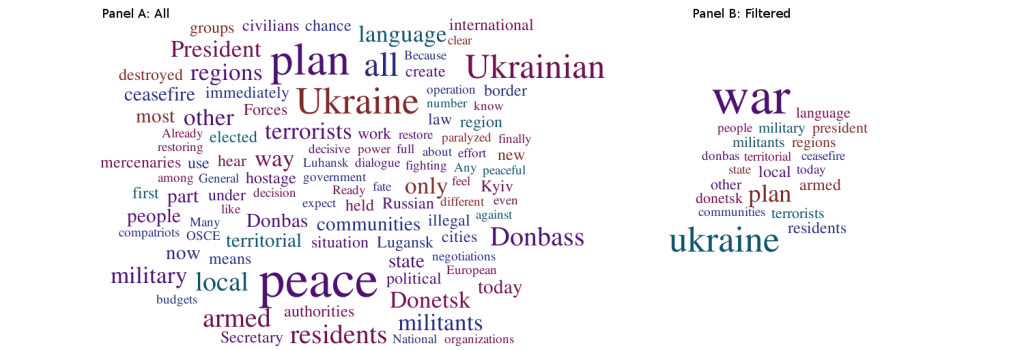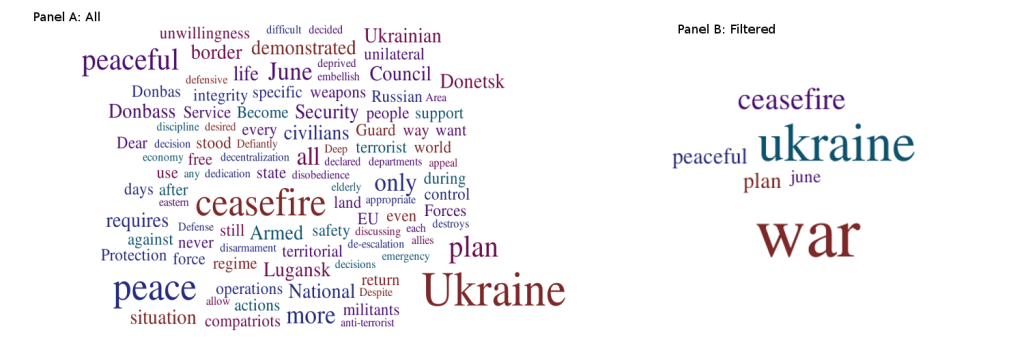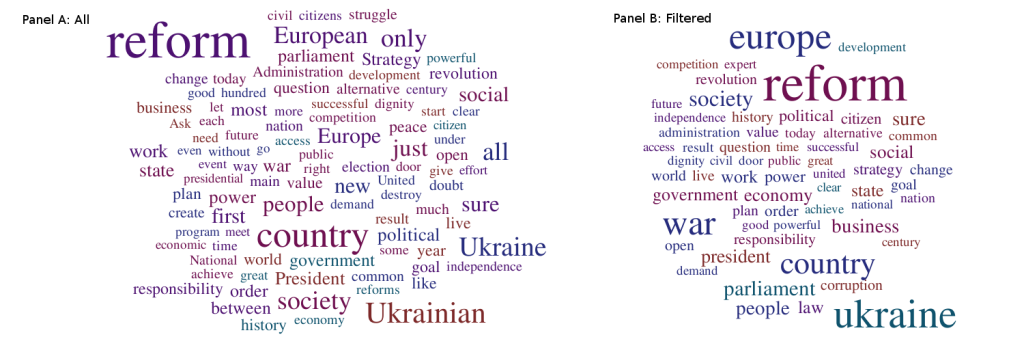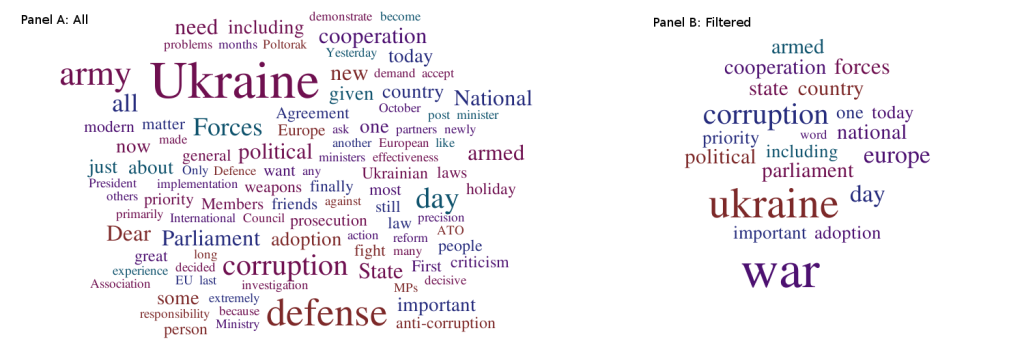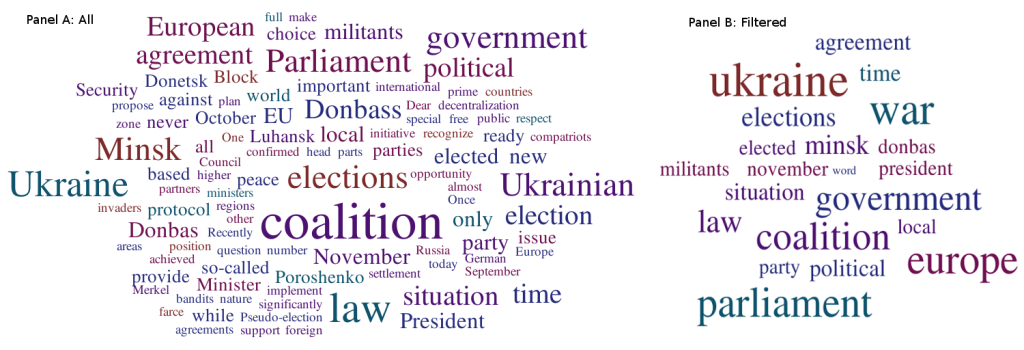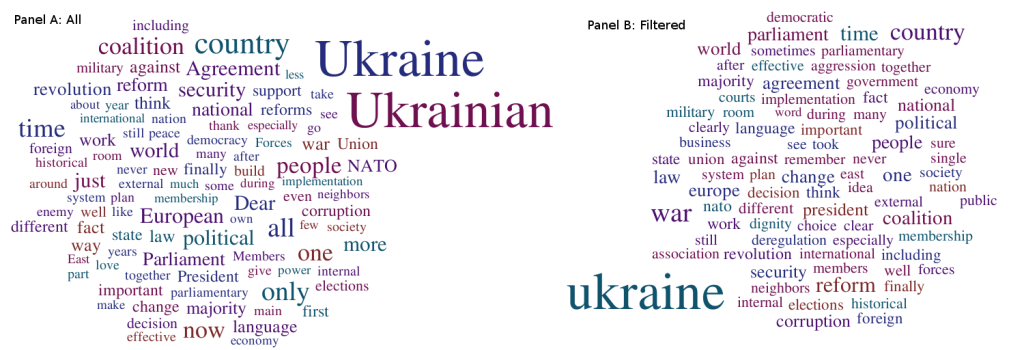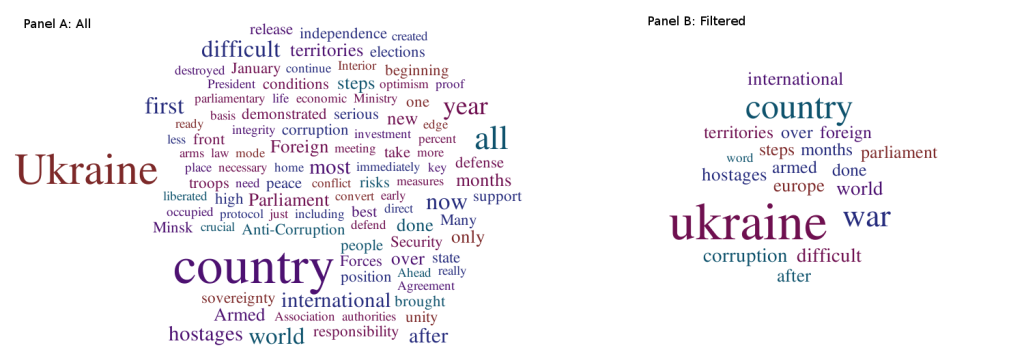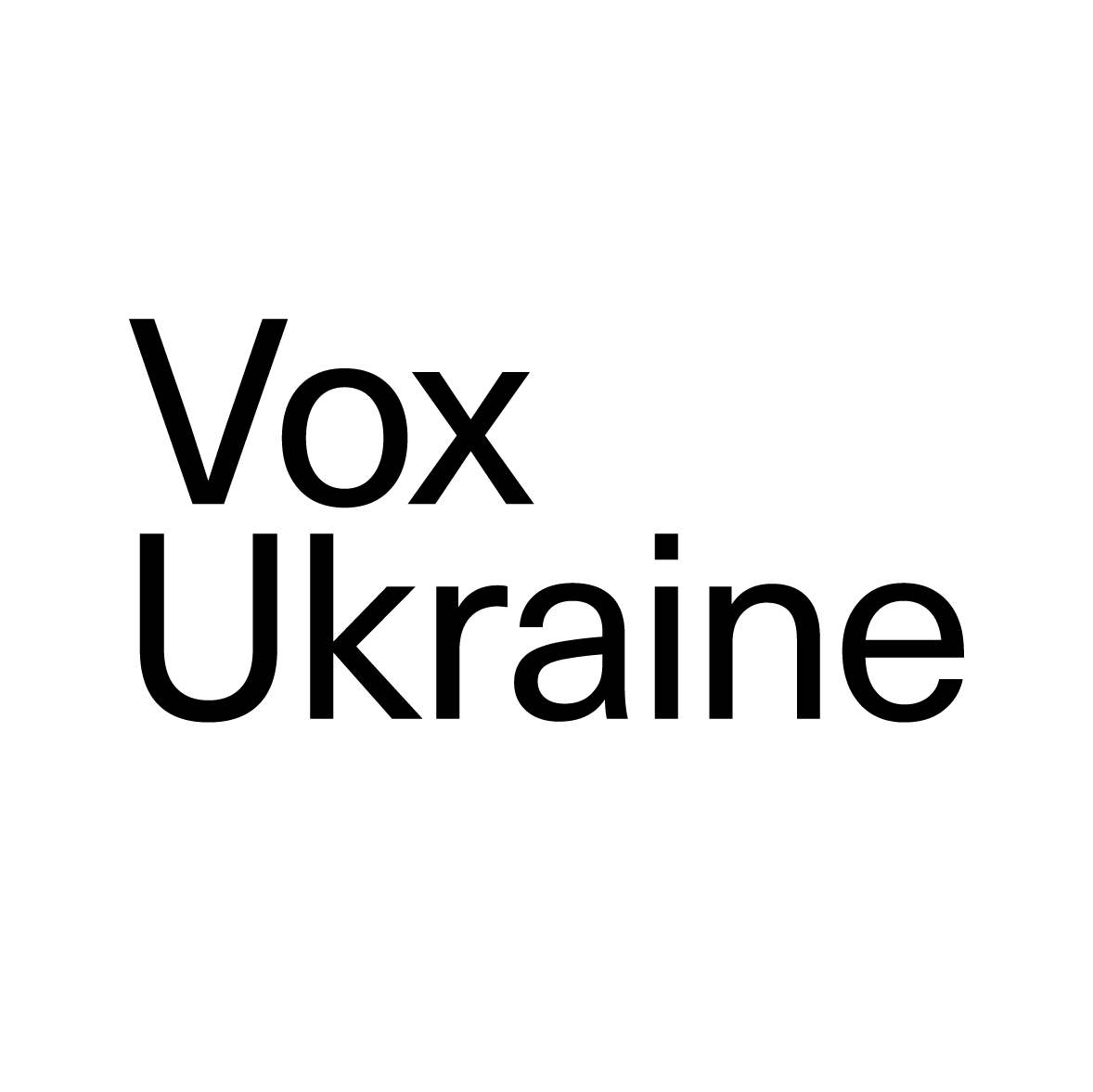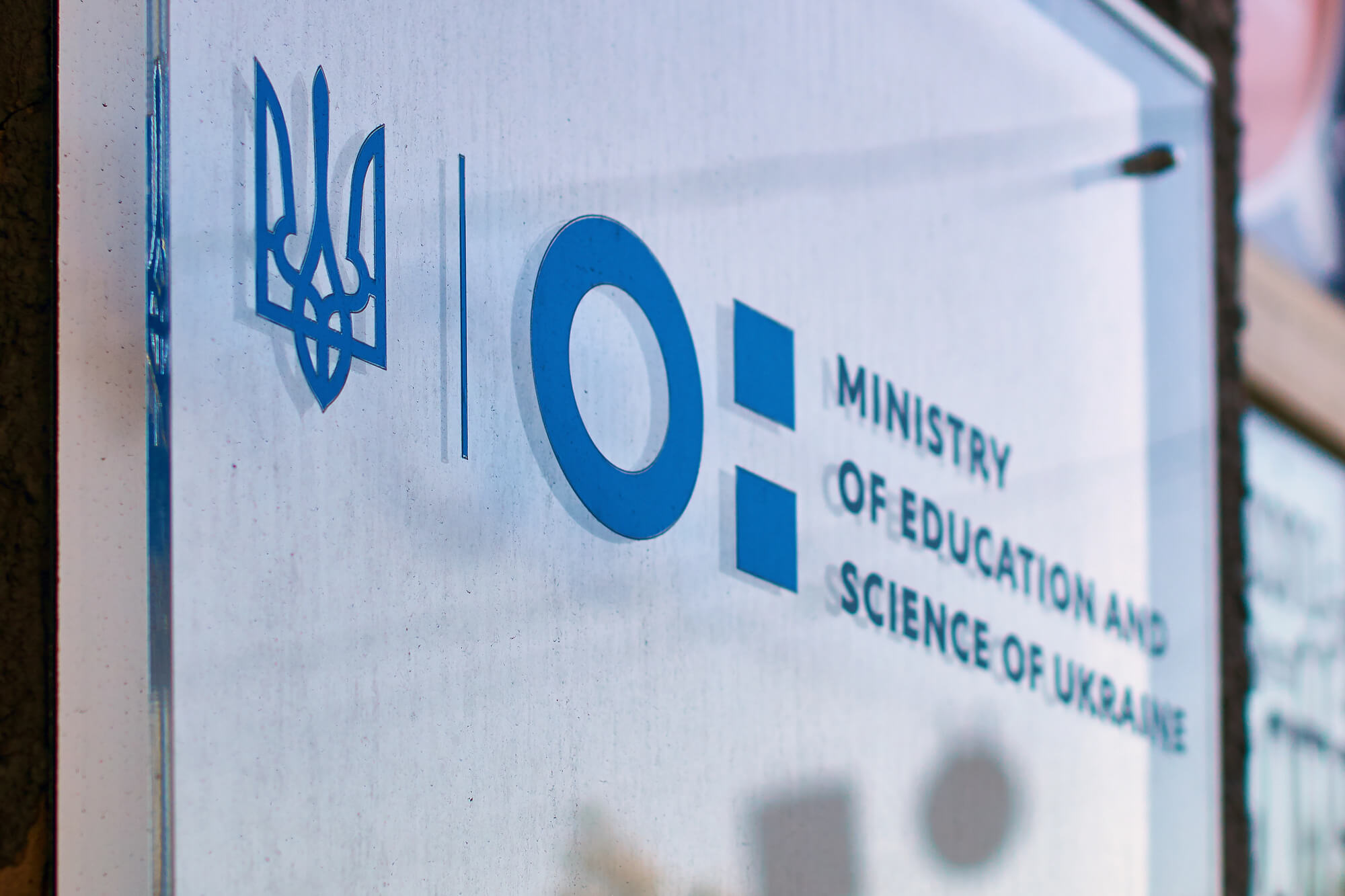Since the Inauguration on June 7, 2014, Petro Poroshenko has spoken publicly 44 times. According to the content analysis, the President has been concerned about the following: the war in Eastern Ukraine, moving towards “Europe”, corruption, importance of parliament and coalition. But “reform” is mentioned as a long-term goal (2020) or not mentioned at all.
Since the Inauguration on June 7, 2014 Poroshenko has spoken publicly 44 times. He made appearance in the Ukrainian, Canadian and Polish Parliaments. His talks were planned (on Independence and Constitution Days) and unplanned (e.g. after Malaysian Airlines plane tragedy). Have the main points of his (or his speechwriters’) messages changed over 6 months? Can one track changes in hints his speeches?
We try to explore answer to these question by using content analysis, which postulates that people frequently mention words related to objects they care about. In simple words, if somebody cares about food, he or she starts using food-related terms more frequently. If somebody stops mentioning food words and switches to mentioning education words, one can infer that education became more important than food.
Similarly to our earlier post we translated Poroshenko’s speeches using Google translate services. We report original text (Panel A) and filtered text (Panel B). Filters are used when different words can be combined into a cluster. For example, one can group words {Ukraine, Ukrainian} into cluster “Ukraine”. Using such filters reduces noise in the data and makes analysis crisp. Exactly the same filters have been applied to all speeches.
The first speech made by Poroshenko was on June 7, 2014. Figure 1 shows the importance of the key words in the speech: larger font size mean higher frequency of words. Security seems to be one of the major concerns as the President talked about war and security frequently.
Figure 1. 07.06.2014 Inauguration: 2,222 words
In our opinion, the next important speech happen on 21.06.2014 when the President announced unilateral cease fire regime. Indeed, terms “war”, “military”, “terrorist” dominated the speech.
Figure 2. 21.06.2014 Cease Fire Speech: 1,457 words
The cease fire regime in the Eastern Ukraine did not last long and Mr. Poroshenko made another speech on July 1, 2014 which has the main message about cancellation of the unilateral ceasefire regime. The speech was very short and was similar in content to the one he made on June 21, 2014. Panel B of Figure 3 looks very similar to Panel B of Figure 2.
Figure 3. 01.07.2014 Back to War Speech: 792 words
After leading the country for 3 months, Mr. President was under pressure to deliver a message to public about his future steps. In contrast to previously discussed speeches, the term reform was introduced. The speech delivered exactly what public wanted to hear: dealing with “war” in Eastern Ukraine, moving towards “Europe”, build new “political” and “government” institutions, help “business” to recover.
Figure 4. 25.09.2014 Press-conference “Strategy 2020”: 3,103 words
On October 14, 2014 Poroshenko gave his last speech in front of the to-be-dissolved parliament. The main message is not different from previous speeches. “War” remains the key word, while “corruption” is in top-3 most mentioned words.
Figure 5. 14.10.14 Speech in the Parliament: 1,446 words
On November 3, 2014 the President delivered another speech to the people of Ukraine. This address happened after results of parliamentary elections were known. The main topic of the speech is linked to parliament coalition and forming government. However, “war” and “Europe” still remain in top priorities.
Figure 6. 03.11.2014 Speech: 1,238 words
The President’s first speech in the newly elected parliament happened on November 27, 2014. It was one of the longest speeches of the President. Terms “Ukraine” and “war” still dominate the word landscape. “Reforms” is another frequently mentioned word as well “parliament” and “coalition”.
Figure 7. 27.11.2014 Rada: 4,300 words
On December 29, 2014, Mr. Poroshenko gave his most recent speech which followed by questions from the media. In contrast to previous speeches “government” was not frequently mentioned, while “war”, “parliament”, “corruption”, and “Europe” still remain in priority list.
Figure 8. 29.12.2014 Press-conference: 1,441 words
Summary
There is certain stability with respect to the key messages. First, Mr. Poroshenko clearly says that the war in Eastern Ukraine is at the top of his priority list. Security is a key word in almost every speech he has made. Second, moving towards “Europe” is another important direction. Mr. Poroshenko repeatedly emphasizes that the future of Ukraine lies in Europe and he consistently views his actions through the lenses of integration with Europe. To the extent the Maidan movement was sparkled by European aspirations of many Ukrainians, the President’s objectives are consistent with his constituents. Third, the president is consistently (and increasingly so) concerned about corruption. Again, many Ukrainians believe that corruption is the main evil of the country. The President appears to appreciate this concern. Fourth, the importance of parliament and coalition is emphasized when the President talked in Verhovna Rada. Clearly, Mr. Poroshenko wants to have stable support in the parliament and he views it as an important ingredient for the success of his policies. Finally, “reform” is mentioned as a long-term goal (2020) or not mentioned at all. Similar situation is observed with “economy” and “business” terms. It appears that while the President cares about Ukraine’s economy, it is not the most important issue for him. This is most unfortunate because one cannot sustain patriotism and national unity without economic successes.
In any case, one could only hope that the President’s rhetoric will be matched with his deeds.
Attention
The authors do not work for, consult to, own shares in or receive funding from any company or organization that would benefit from this article, and have no relevant affiliations
